![]()
» US’ New Approach to JCPOA
This editorial focuses on the policy US President Donald Trump is developing to scuttle Iran’s nuclear deal.
The editorialist believes that Trump will not openly exit JCPOA as he is well aware of the risks it might pose. Instead, he is after convincing the international community that even if Iran has adhered to JCPOA so far, there is no guarantee that it would continue doing so. In Trump’s view, Iran’s establishment has shown no respect for international laws, for instance by occupying embassies and hostage-takings; therefore, it can hardly comply with international agreements.
However, this policy is problematic: Trump first announced that he plans to decertify Iranian compliance with JCPOA, then asked his cabinet to prepare the grounds for it. Perhaps that is why a number of US Senate Democrats have demanded that the Trump administration provide the Congress with documents which show Iran’s non-compliance with JCPOA.
To sum up, Trump’s possible refusal to certify JCPOA on October 15 is facing both domestic and international disagreements. Nonetheless, Iran needs to have plans for all potential scenarios. Given Trump’s character, it is not clear whether he will stick to his words or break them.
An editorial in “Shargh” daily on September 27, 2017
» Day after Iraqi Kurdistan’s referendum
Shargh daily’s editorial focuses on future of Middle East after Iraqi Kurdistan’s referendum for independence.
The editorialist holds the issue of the referendum in Iraqi Kurdistan and separation of Kurdish region from Iraq’s central government goes back to years ago and it is not a recent issue. The issue goes back to the collapse of Ottoman Empire; a Sykes-and-Picot agreement which made new countries without taking into account the regional issues such as language, culture, and religion; etc.
The editorial then emphasizes on consequences of the referendum’s result for neighboring countries, saying that after the referendum, Kurds, as an ethnic group, will have an ‘independent base’ and all Kurds will look towards their so-called ‘motherland’. The day after the referendum and declaration of independence by Iraqi Kurds, the Middle East will be different, even on paper.
According to the editorial, Kurdistan’s independence will create many differences and disagreements among countries of the region, but “Whether we like it or not, the referendum is held and a country will be shaped in middle of mountains, without free land, air or sea borders, with governments that are going to oppose it and with enthusiastic people who have suffered for hundreds of years.”
At the end, the editorial highlights common denominators such as race and language among Iranians and Kurds, as well as Kurds’ peaceful coexistence with other peoples of the region, hoping that independence of Kurdistan will not create differences in the region. The editorialist adds, “no doubt Kurd ethnic group has suffered injustice in at least past hundred years,” emphasizing that “we should start thinking about the day after the referendum because Kurds’ issue cannot be addressed any longer the same as before the referendum.”
An editorial in “Shargh” daily on September 26, 2017
» Roar of War, Sound of Peace
This editorial compares and contrasts the UN General Assembly addresses by presidents of U.S. and Iran.
The writer notes that Donald Trump, in a spiteful speech against Iran, threatened if JCPOA does not serve his country’s interests, he refuses to adhere to it. Trump also threatened to “totally destroy” a UN member state, namely, North Korea. U.S. President’s UN address can be compared to that of former Iranian President Mahmoud Ahmadinejad. Unlike the two, President Rouhani emphasized on a moderation policy in his UN speech, saying that Iran is after a comprehensive peace and supporting nations’ rights.
The editorialist holds that Rouhani has had a successful record due to his efforts in changing the country’s policies, hence changing the world’s opinion of Iran; and offers three suggestions to keep this position. First, Iran should continue its adherence to JCPOA. Second, Iran’s diplomacy in the region needs to be focused on improving relations with its neighboring countries. Third, solidarity among left and right in Iran is of primary importance when facing foreign enemies. The world should hear only one voice from Iran regarding the crisis in the region as well as global issues, concludes the editorial.
An editorial in “Shargh” daily on September 25, 2017
![]()
♦ Iran to build nuclear vessels
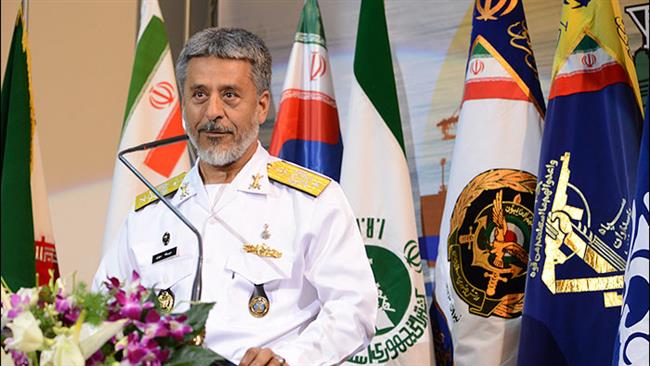
Rear Admiral Habibollah Sayyari, the commander of strategic naval forces of Iranian Army, pointed out that with government ratification, Iranian ships can be equipped with nuclear energy, saying these issues are at research stages and are being studied at related centers.
As for deploying flotillas to international waters, Sayyari said so far, Iran’s 49th flotilla is navigating in the Gulf of Aden, adding that 7 flotillas of ‘peace and friendship’ were deployed to the Caspian Sea.
Arman Emrooz
♦ 3 million families under poverty line
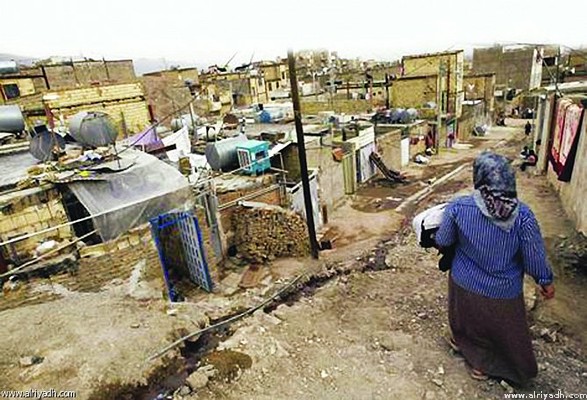
Deputy to urban housing affairs of the Iranian Revolution Housing Foundation stressed that the condition of housing in Iran still needs the serious assistance of all organizations, adding that 19 million people are suffering from the poor housing in the country. Javad Haghshenas asserted that according to statistics, there are 3 million families who are tenants and live under poverty line.
Arman Emrooz
♦ ATR delivers 2 aircraft to Iran Air
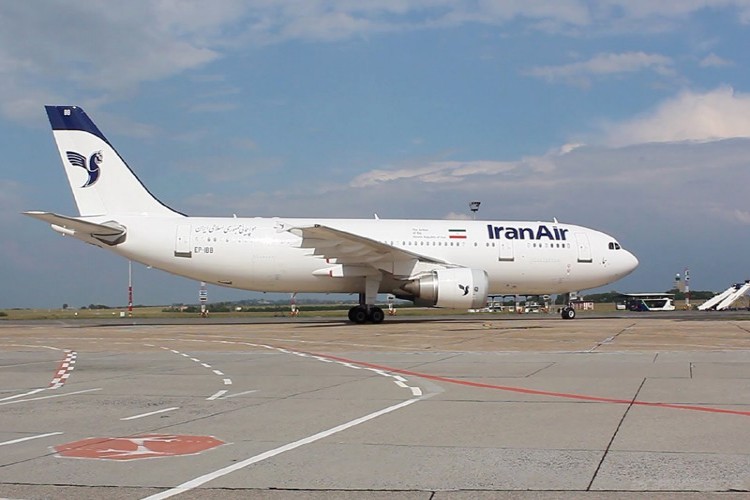
Iran Air announced that two new aircraft of this airline purchased from ATR would land in Tehran on Wednesday. Iran Air reached an agreement with ATR for purchasing 20 aircraft from this Italian-French company, and within the framework of this contract, all aircraft are going to be delivered to Iran by the end of 2018.
Abrar Eghtesadi
♦ Iran to stand by Syria despite outcome
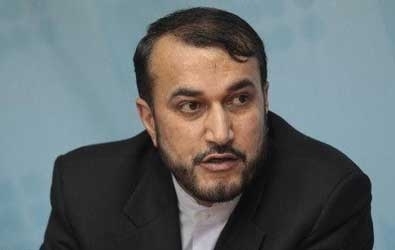
Hossein Amir Abdullahian, the special assistant of parliament speaker in international affairs, met with Ragheb Hossein Al-Hossein, representative of al-Fu’ah and Kafriya in Syrian parliament. Amir Abdullahian emphasized that Iranian parliament is closely following the “troubling human conditions” in al-Fu’ah and Kafriya, saying the “parliament will not spare any help for defenseless people of this city who are under the Takfiris’ siege.” He stressed that “Iran will always stand by the Syrian government.”
Jahan Sanat
♦ Jahangiri: No institutes, individuals exempt from auditing or monitoring
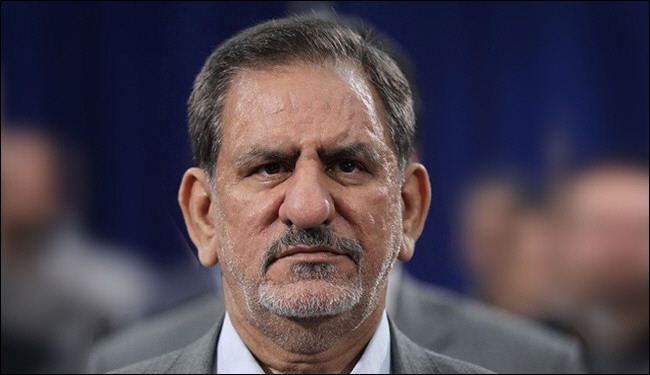
Iran’s First Vice President Eshaq Jahangiri underscored the performance of Headquarters for Coordination in Fighting Economic Corruption in the 12th government, saying in “the 12th government, too, we are still determined to seriously fight economic corruption. Jahangiri asserted as this headquarters was new in the 11th government, it had a tough task ahead, and despite all difficulties and restrictions, it had good achievements and performance.
Ebtekaar
♦ Shamkhani: Iran will not recognize referendum in Iraqi Kurdistan
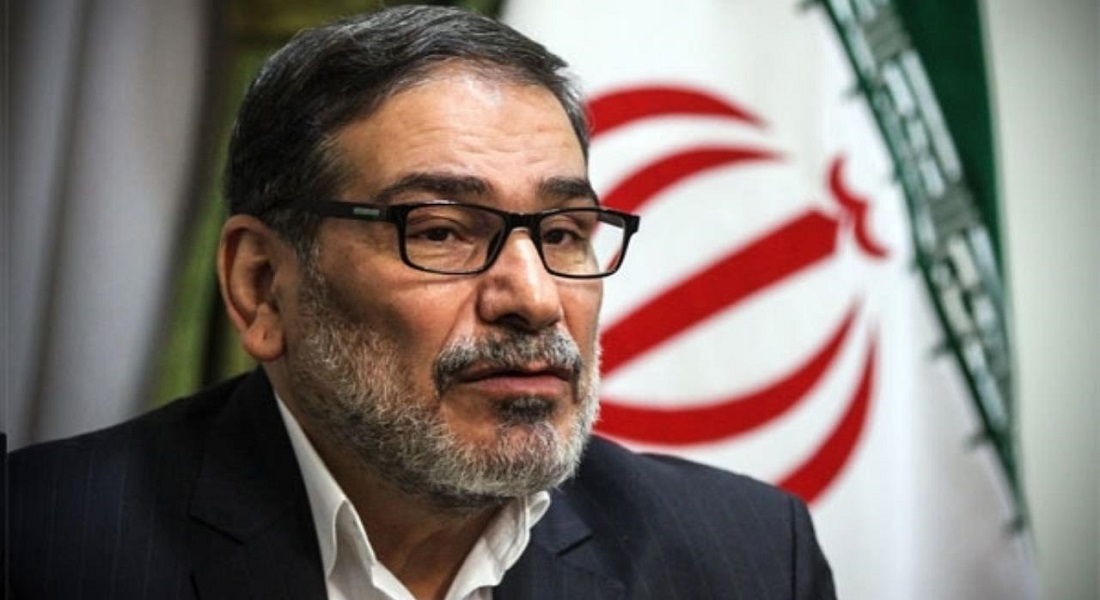
Spokesperson of Parliament’s board of directors Behrooz Nemati said that Ali Shamkhani, Secretary of Iran’s National Security Supreme Council, in the parliament’s closed session with lawmakers, has emphasized that Iran will not recognize the referendum in Iraqi Kurdistan.
Nemati added Secretary of Iran’s National Security Supreme Council stressed that Iran has Iraq’s territorial integrity in mind, saying that measures that are to be taken in the region must be through negotiations because Iraq’s territorial integrity must be preserved, given the country’s constitution and international treaties.
Fars news agency
♦ Salami: Trump admits Iran’s power
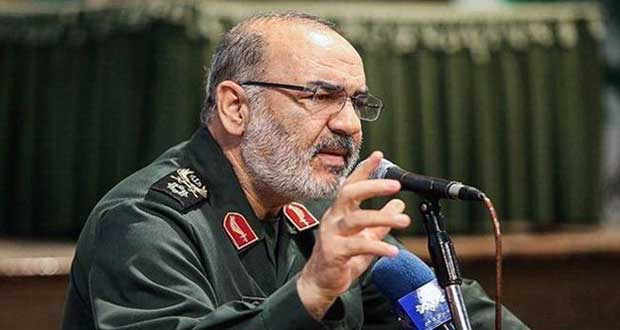
The successor to the commander of IRGC Brigadier-General Salami stated that U.S. president’s speech against Iran in UN General Assembly was passive, and Trump’s language was “not only not threatening, but it was a helpless acceptance of emergence of an uncontrollable power.” He added that Iranian regime has today become a number one priority in the world.
Vatan Emrooz
♦ Golpayegani: Unveiling Khorramshahr missile made noise in world
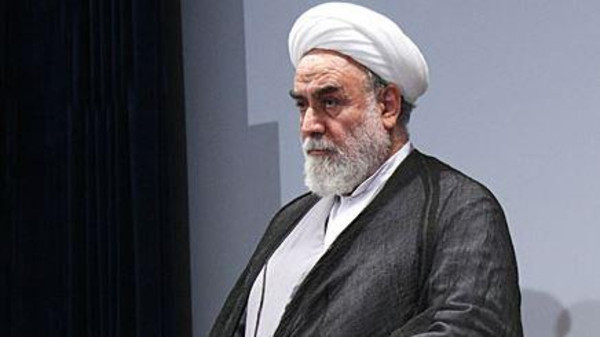
Head of the supreme leader’s office Mohammad Mohammadi Golpayegani pointed out to unveiling Khorramshahr ballistic missile, saying “this unveiling made a lot of noise in the world, and those who are sitting in glass houses must know that houses of those who make a lot of noise will be destroyed.”
Dabagh: Qassem Suleimani advised Barzani to stop referendum
Representative of Iraqi Kurdistan in Iran Nazem Dabagh made explanations about the commander of Quds Force Qassem Suleimani’s meeting with elders of Iraqi Kurdistan before the referendum for independence. He said Qassem Suleimani visited Erbil and Suleimaniyeh, recommending that the referendum not be held, saying that Iran would be ready to create agreements between Iraqi Kurdistan and Baghdad to solve the problems within the Iraq’s constitution.
As for the impact of the referendum on relations between Iran and Iraqi Kurdistan, Dabagh said it has two aspects: one is its popular aspect and the other is related to political leaders. He urged, “We should wait and see what will happen after the referendum, given the common interests of Iran, Iraq, and Turkey.”
Vatan Emrooz
♦ 83% of Iranian cities exposed to earthquakes
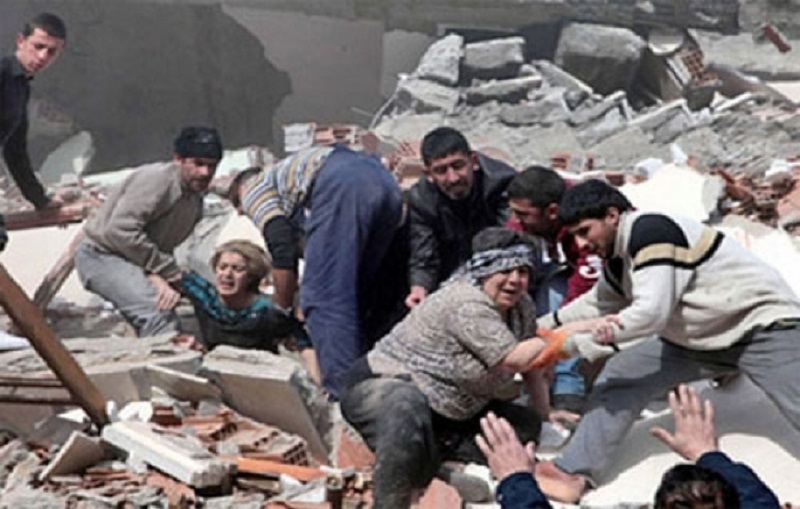
Iranian seismologist Bahram Akasheh stressed 83% of Iranian cities are strongly exposed to the danger of an earthquake. He added there are 5 regions prone to earthquakes in Iran: Alborz, Zagros, northwest of Iran (Azerbaijan) eastern Iran (Mashhad region) and northeast of Iran.
According to Bahram Akasheh, all Tehran is vulnerable and if there is a 6 Richter earthquake, it will have dire consequences for this city. There are 1,000 unsafe schools in Tehran and 101 unsafe buildings only in the Zone 12 of Iran’s capital, which makes this city’s conditions critical against earthquake.
Vatan Emrooz
♦ Paris to finance French projects in Iran

General Manager of Bpifrance Nicolas Dufourcq said that this French investment bank will finance investment projects of French companies in Iran from 2018, allocating 500 million Euros to this issue in its annual credits.
Dufourcq added that Bpifrance is the only French bank that can do this without taking the risk of U.S. sanctions for possible violation of remaining sanctions.
Abrar Eghtesadi
♦ 12 thousand unemployed graduates in Zanjan

Faramarz Nikseresht, economic deputy to Zanajan’s governor, said there are 12 thousand unemployed graduates in this province. He emphasized that if manufacturing units don’t confine themselves to domestic market, they will certainly become successful.
Afkar news
♦ Iran to reduce oil export temporarily
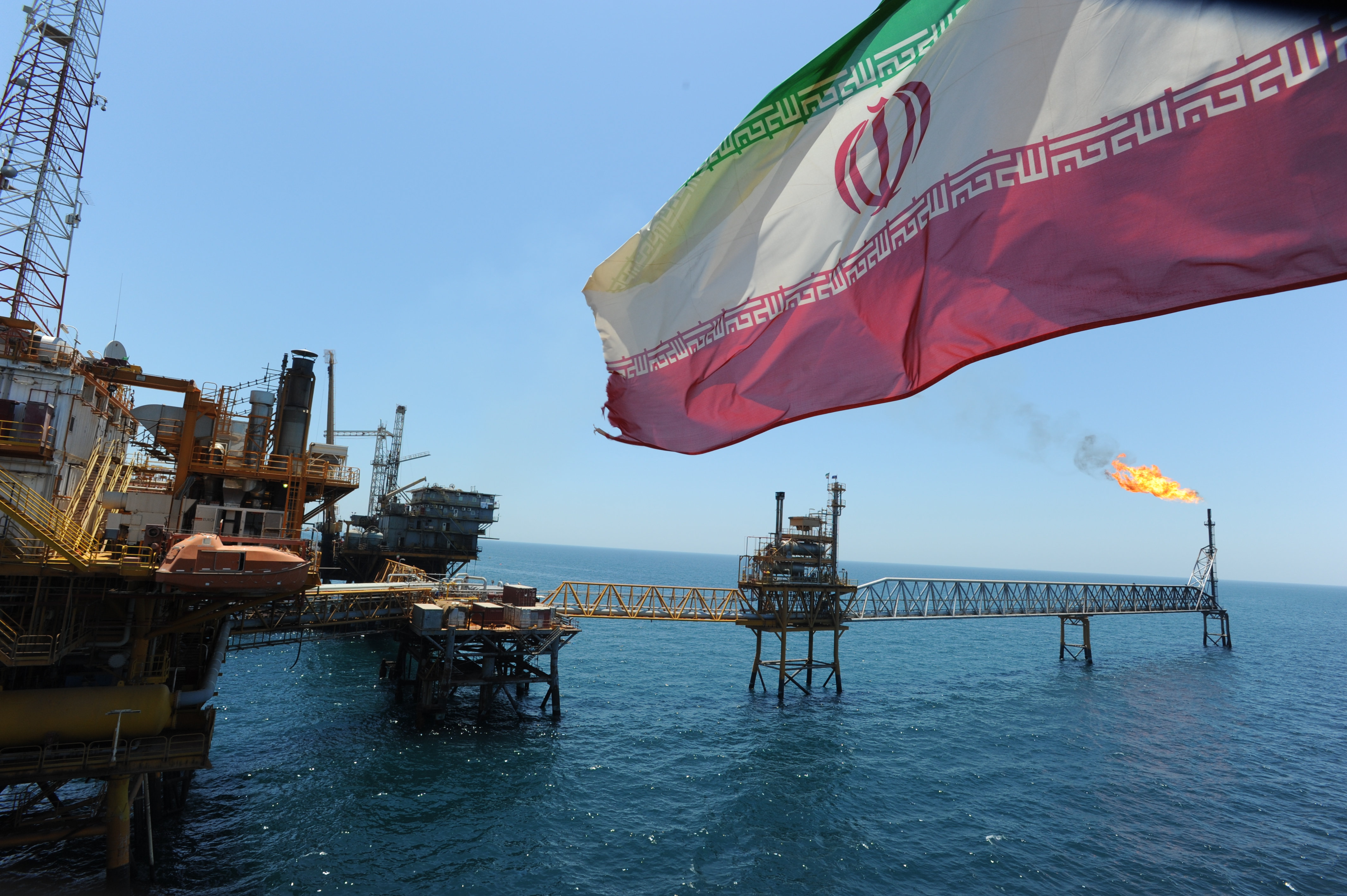
A senior official in Iran National Oil Company announced even though Iran intends to keep its export of crude oil and gas condensates until the end of 2017, repairs, reduction in oil reserves, and growth in domestic demand will restrict the export. Saeed Khoshroo, head of international affairs of Iran National Oil Company, added gas condensate export will be cut from 550 thousand barrels per day to 450 thousand barrels per day due to repairs in South Pars oil field.
Bartarinha
♦ Rounding up 352 working children in Tehran

Representative of Social Services Organization of Tehran municipality announced rounding up of 352 working children in this city, urging that even though Tehran mayor is against the plan for rounding up these children, this plan is implemented by the governor’s order himself. He added that 16 centers are established in this regard, and 3000 children go to these centers every day.
Bartarinha
♦ “Those under house arrest enjoy ordinary life”!

Brigadier-General Mohammad Esmaeel Kowsari, the successor to the commander of IRGC’s Sarallah Base, said that the leaders of 2009 protests who are under house arrests “can easily come and go, visit their relatives, go on trips and have ordinary lives.”
Kowsari added activities of Mir-Hossein Mousavi, Zahra Rahnavard, and Mehdi Karroubi have been restricted to stop their ‘anti-security’ activities.
In relation to lifting their house arrests, Kowsari said, “lifting house arrests means court. We don’t want for anyone to be under house arrest, but Karroubi and especially Mousavi must be accountable for the blood that was shed in 2009.”
Kowsari went on to say, “If they want to talk and apologize, we will hold a press conference for them. If they apologize and repent, naturally their punishments might be reconsidered and commuted and they will certainly have better conditions.”
According to Kalameh Website, close to Mir-Hossein Mousavi, daughters of Mousavi and Rahnavard are concerned about their parents’ health who are under house arrest.
Karroubi, Mousavi, and Rahnavard (Mousavi’s wife) have been under house arrest since 2011.
BBC Persian
♦ Zarif: Extension of travel ban offends Iranians
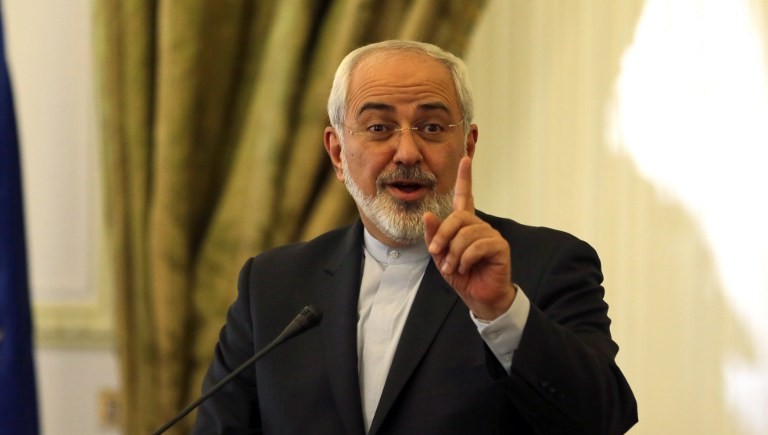
Following the extension of the travel ban against Iranian citizens by U.S. President Donald Trump, Iran’s FM Mohammad Javad Zarif wrote on his twitter, “Trump’s fake empathy for Iranians rings ever hollower, with his new and even more offensive travel ban against such outstanding citizens.”
ISNA
♦ Iran denies summoning of consul general in Erbil
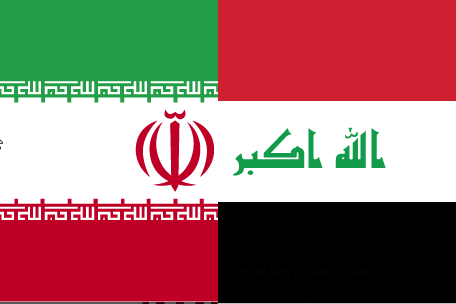
Some foreign media reported Iran’s consul general in Erbil Morteza Ebadi was summoned by Iraqi Kurdistan’s officials, but an informed source in the consulate denied such reports.
Some Iraqi Kurdistan’s media, as well as the western media, said that Iraqi Kurdistan had summoned Ebadi for Iran’s artillery attacks against this region. Meanwhile, IRGC Ground Forces are holding a military drill in Provinces of West Azerbaijan and Kurdistan, ‘for defense and security’.
Tasnim news
♦ Iran shells Iraqi Kurdistan

Iran has reportedly shelled border villages of Iraqi Kurdistan. Hassan Saharafi, deputy director and spokesperson of Democratic Party of Iranian Kurdistan confirmed the news, saying since mainly farms near these villages were targeted, these attacks have had no casualties so far.
Meanwhile, Mohammad Ali Assoodi, advisor to Iran’s leader in IRGC, denied Iran’s attack against Iraq, calling it “western media’s mischief for marginalizing IRGC’s military drill”.
IRGC’s military drill started on Sunday, a day before holding a referendum for independence in Iraqi Kurdistan.
Khabar online
Radio Farda
♦ 5 members of Rafsanjani’s family banned from leaving country

Faezeh Hashemi, late Rafsanjani’s daughter, announced 5 members of Akbar Hashemi Rafsanjani’s family have been banned from leaving the country. The announcement comes a month and a half after she first talked of putting a travel ban on 4 members of Rafsanjani’s family.
Faezeh Hashemi had previously said “perhaps they think we are in possession of documents of regime’s secrets and we want to publish them. But this isn’t so.” She added that Hashemi Rafsanjani was “wise enough not to leave any such documents behind for us. At least, I don’t have any.” Rafsanjani’s daughter added that if hypothetically, there were any such documents, it would not be necessary to leave the country for publishing them with today’s technology.
BBC Persian
♦ Iran, Armenia sign agreement on nanotechnology

In the framework of the development of technological-scientific relations, Iran and Armenia signed an agreement for cooperation in nanotechnology. This agreement was signed in the sideline of a two-day scientific and technological conference held in Yerevan, Armenia’s capital, with the presence of Iran’s Ambassador Kazem Sajadi and Saeed Sarkar, secretary of nanotechnology headquarters.
Conducting scientific researches especially in nanotechnology, holding joint workshops, sharing related experiences and progresses, and cooperation for changing scientific discoveries into commercial and industrial products are parts of the agreement.
IRNA
♦ Reformist Telegram channels’ admins file appeal

Iman Mirzadeh, the lawyer of some reformist Telegram channels admins, asserted that his clients have filed for an appeal. Mirzadeh said the motion for appeal has been presented to the court. He added that lawyers of cases of reformist Telegram channels admins were going to present a defense motion together, but this wasn’t possible due to a shortage of time.
Nima Keshvari and Ahmadnia have been sentenced to 5 years of imprisonment, Naghdi, and Jamshidi to 4 years of imprisonment, and Sobhan Jafari to 3 years of imprisonment.
12 reformist Telegram channels admins who supported the 11th government were arrested in 2017 before Iranian presidential election. The arrests were called ‘political’ by some government officials and MPs called.
Jahan Sanat
♦ Iran unveils ballistic missile
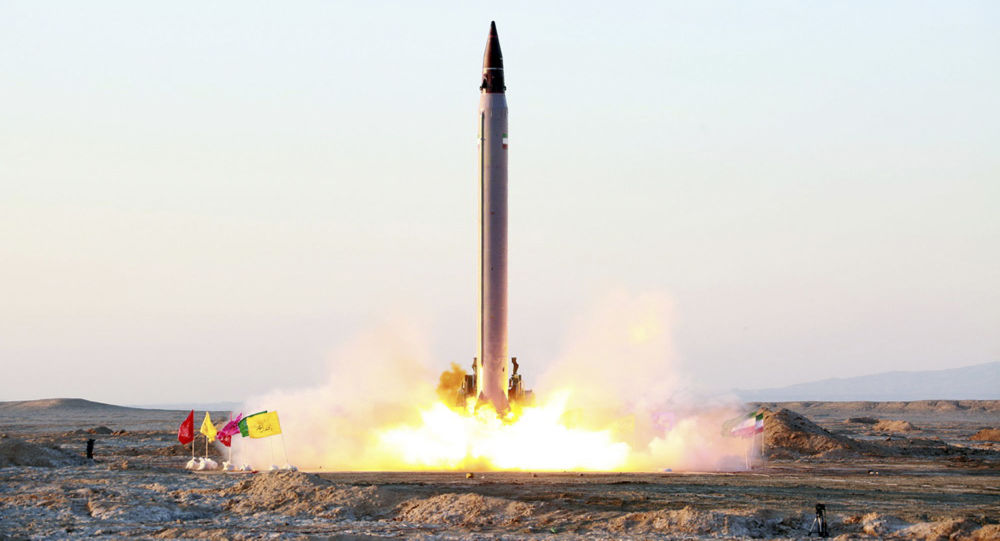
Iran unveiled a new ballistic missile called ‘Khorramshahr’ during a military parade in Tehran in the presence of President Hassan Rouhani. The military parade was to mark the anniversary of the start of Iran-Iraq war in 1980.
Khorramshahr missile “has a range of 2,000 kilometers with the ability to carry multiple independently targetable reentry vehicle (MIRV) within a range of 1,800 kilometers,” according to IRGC Aero-Space Commander Brigadier-General Amir Ali Hajizadeh.
Abrar news
♦ Economic relations to develop between Iran and Brazil
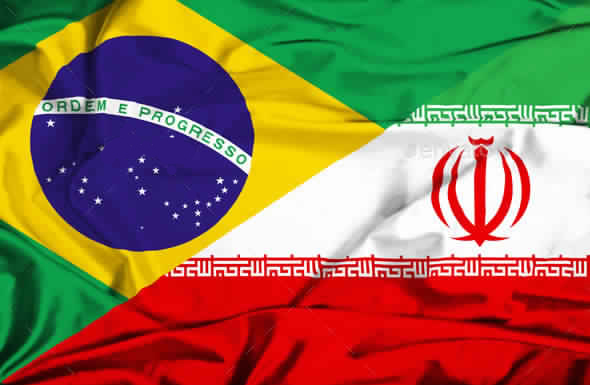
Foreign ministers of Iran and Brazil met and consulted in the sidelines of UN General Assembly. During the meeting of these two high-ranking officials of Iran and Brazil in New York, ways for developing and deepening the relations especially in the field of economy and trades were discussed.
ISNA
